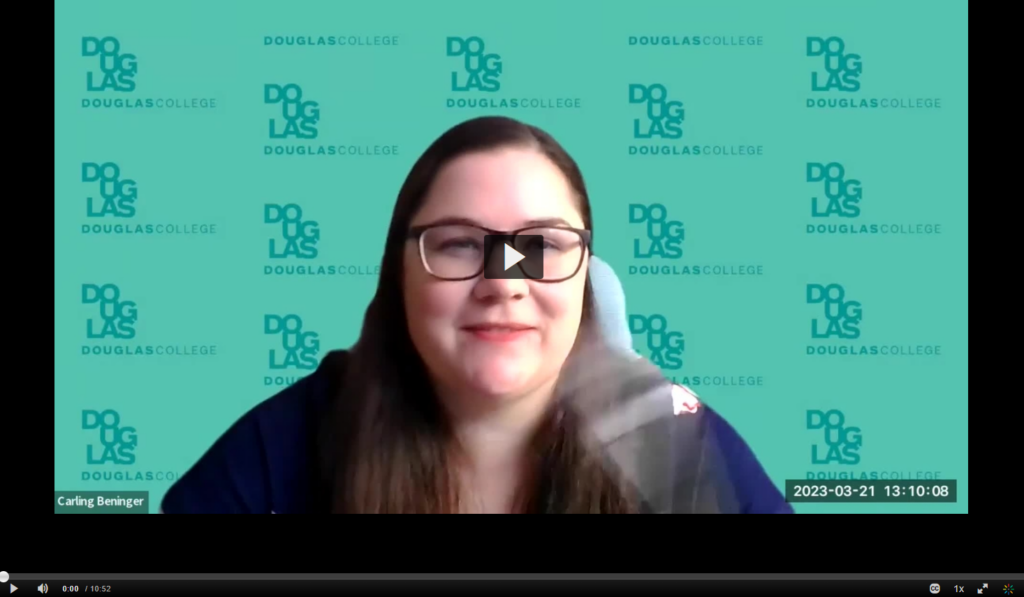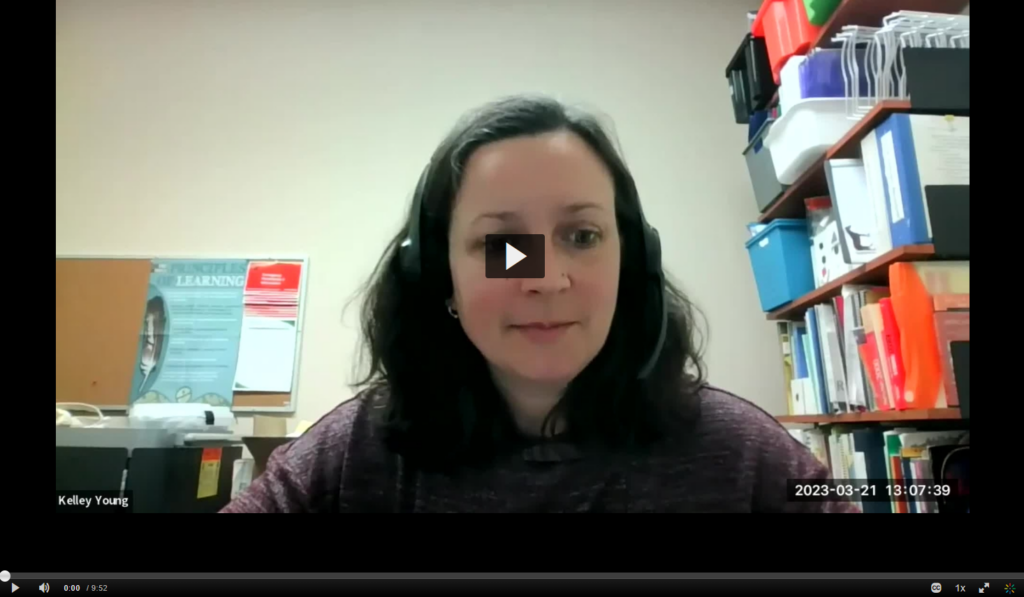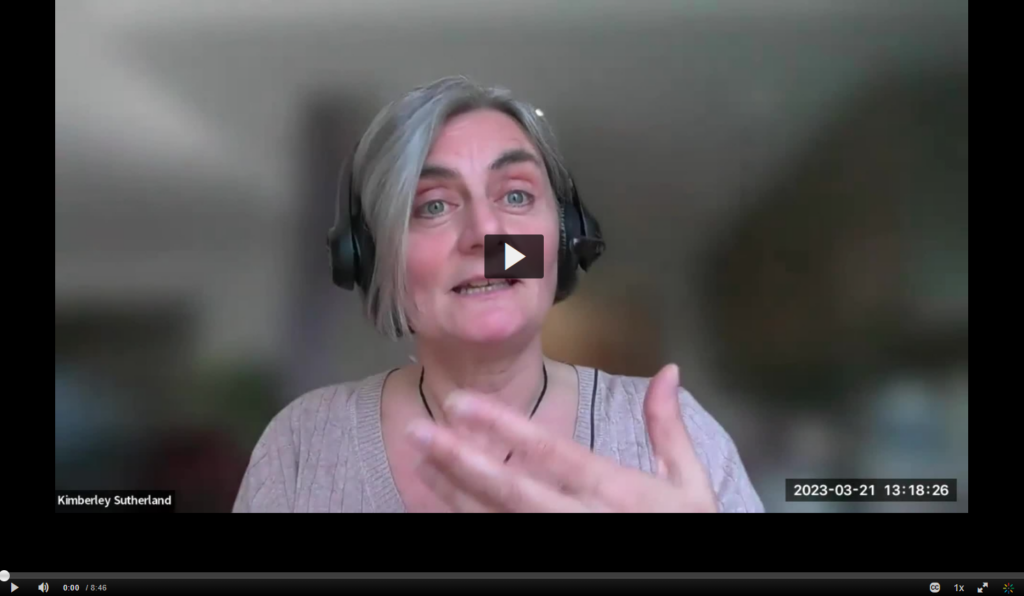These video excerpts are from the March 21 Stumbling Blocks and Stepping Stones hosted by Jennifer Anaquod.
Carling Beninger
- Carling expresses discomfort as a white settler teaching Indigenous history classes and discuss how she has navigated this by listening, centering Indigenous voices, and bringing in guest lecturers.
- Carling mentions the importance of compensating Indigenous guest speakers for their time through an honourarium and providing a gift as per Indigenous protocol.
- She aims to create a safe and inclusive environment for students, acknowledging the diverse backgrounds and experiences of her students.
- She uses innovative teaching methods, such as having students perform an act of reconciliation, which has allowed some Indigenous students to connect with their culture.
- Carling believes that education is a crucial part of reconciliation and feels fortunate to play a role in sharing Indigenous history with her students.
Click on the image below to watch Carling speak about her journey.

Kelley Young
- Kelley is part of a pilot project in the Northwest Territories, teaching online courses for people who are in the role of educational assistance.
- She acknowledges past mistakes and misunderstandings when working with Indigenous students and families, and is committed to learning and growing.
- She has made changes to her teaching approach, such as leaving more space for conversation and wait time during live Zoom sessions, and using a Padlet for sharing and discussion.
- Kelley values the connections made with people in the course and appreciates when they share their experiences and knowledge.
Click on the image below to watch Kelley speak about her journey.

Kimberley Sutherland
- Kimberley acknowledges feeling discomfort and uncertainty, especially when making territorial acknowledgments in front of her students. She tries to engage her students in these discussions and shares her own learning journey.
- She values the connections made with people in her course and appreciates when they share their experiences and knowledge.
- She acknowledges past mistakes and misunderstandings and is committed to learning and growing.
- Kimberley believes in the importance of moving forward despite discomfort and uncertainty, recognizing her position of privilege, and empathizing with those who do not share that privilege.
Click on the image below to watch Kimberley speak about her journey.


Leave a Reply